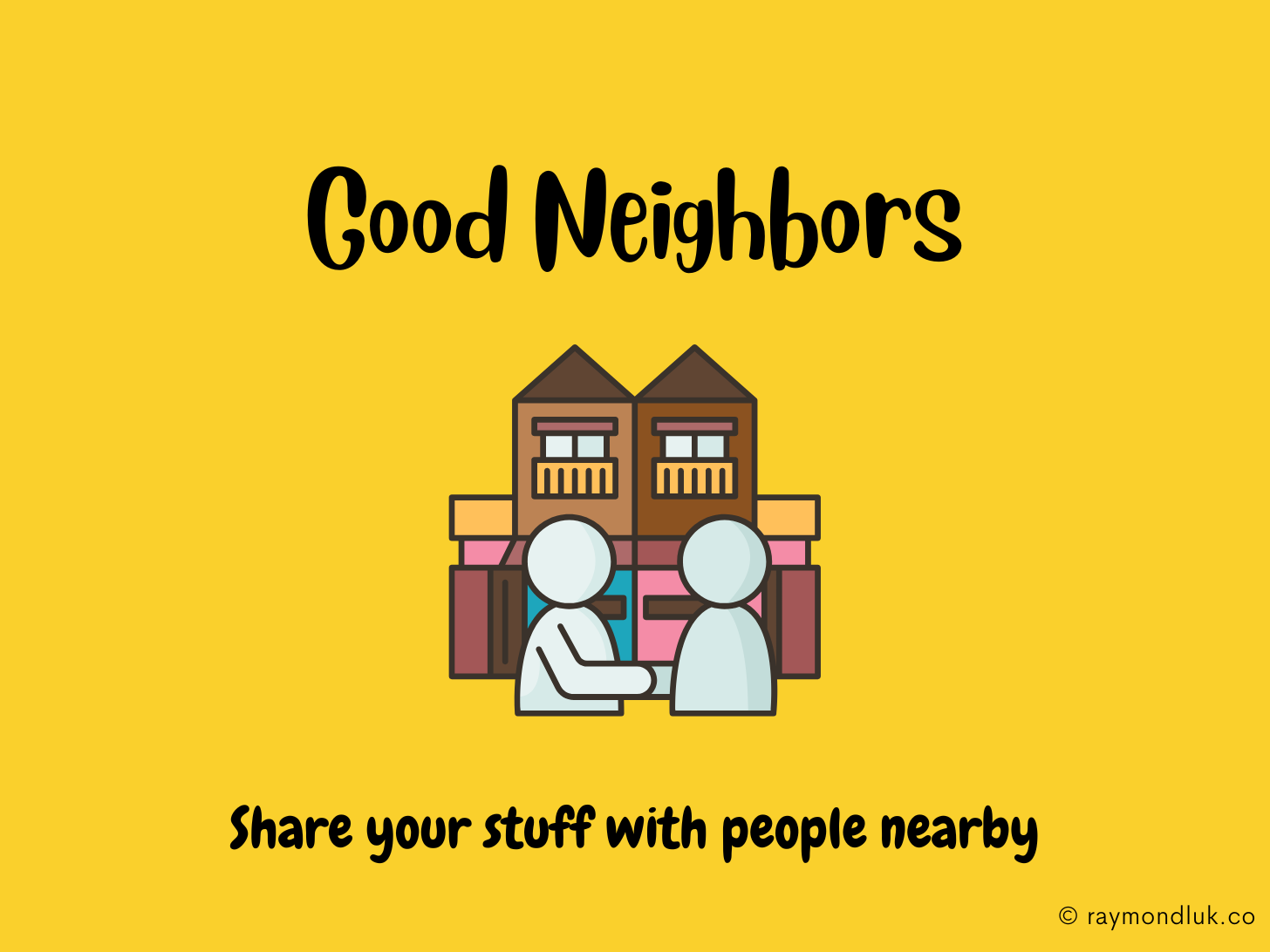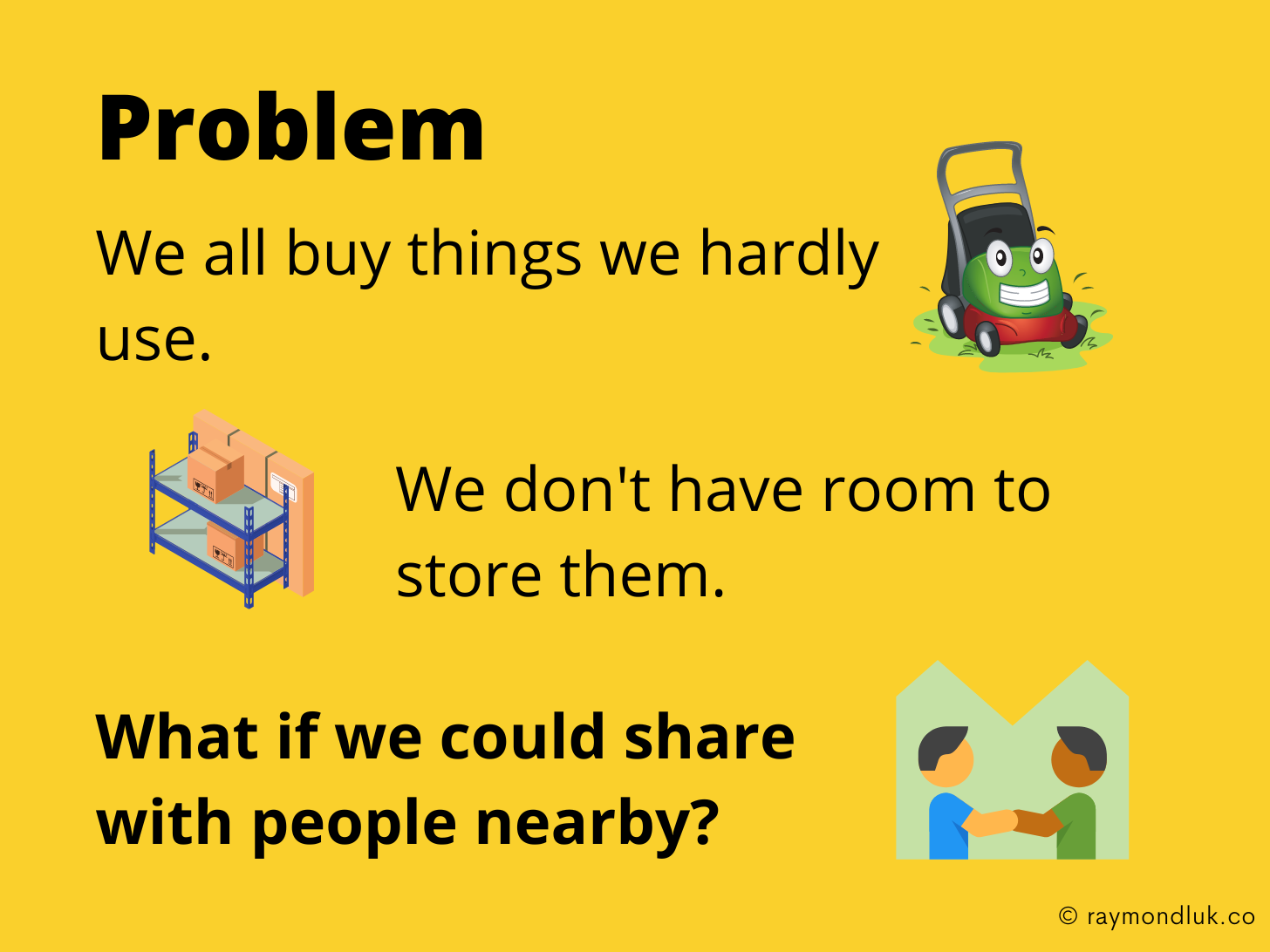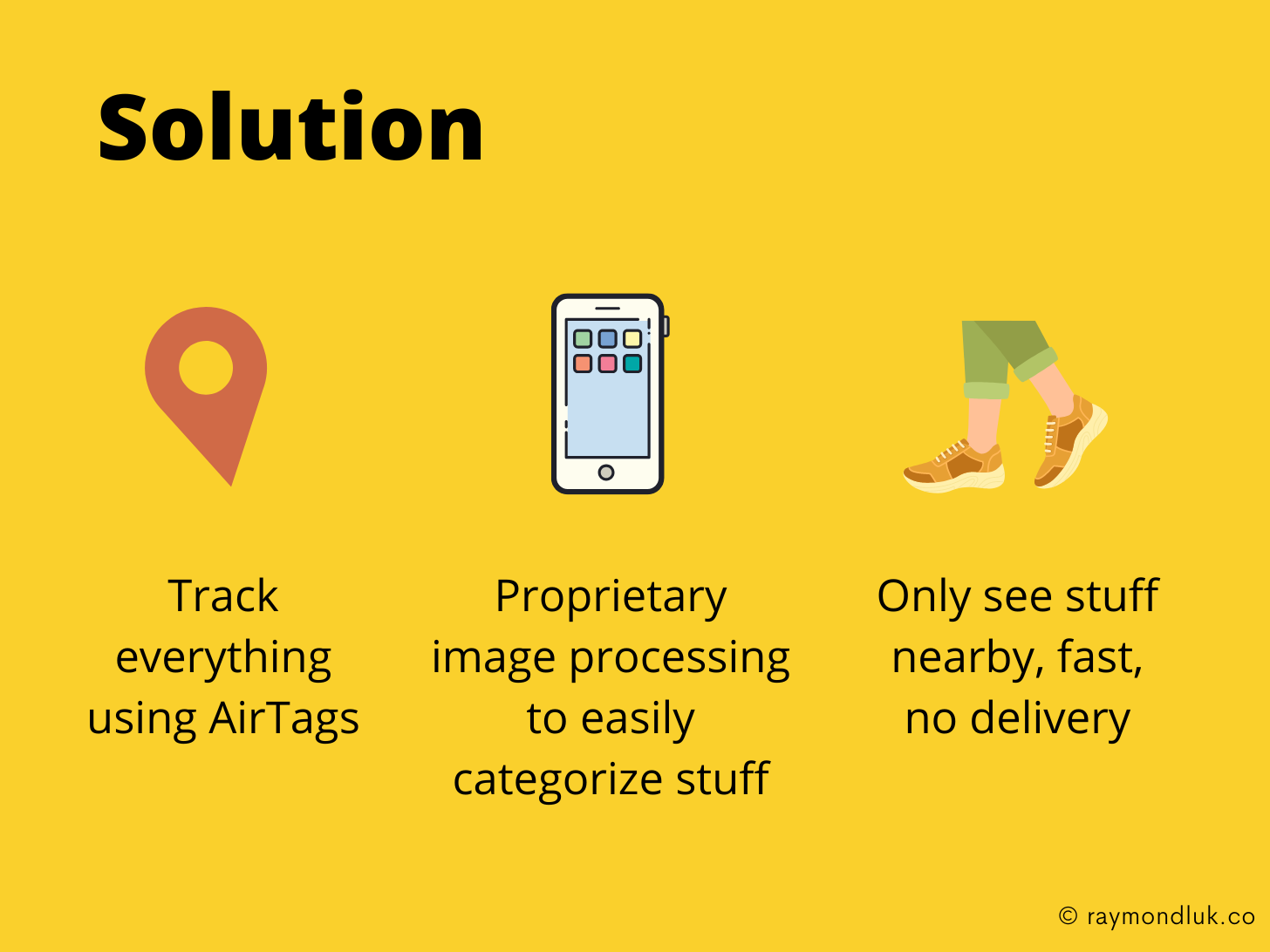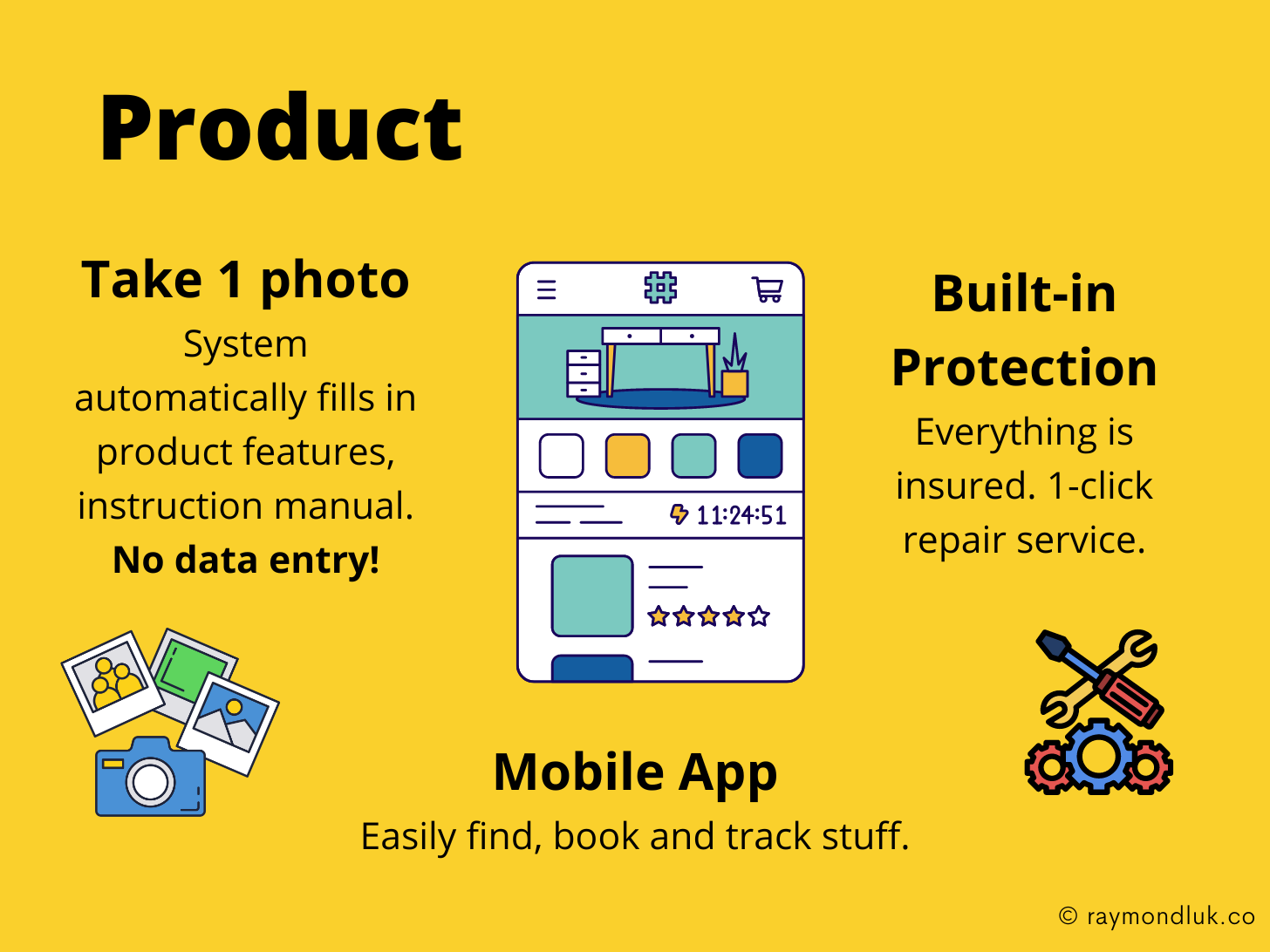A mini teardown of my own startup idea
A lot of people have difficulty knowing what details to remove from their pitch deck. Behind every pitch is a detailed, rigorous analysis (hopefully). But all those details don’t necessarily make a good story.
I made up a few slides of a fictional startup called Good Neighbors to talk about how simple stories can contain a lot of ideas. Go ahead and steal the idea or leave a comment if this exact product already exists.
I’m looking for pitch decks or slides for future friendly teardowns:


You can build empathy with a problem without going into too much detail.
Target market
The lawnmower tells us the target users are surburban, not urban. The age group is probably 30+ because twenty year-olds should have fun, not buy lawnmowers. We know they’re homeowners so we know they earn a good income especially if they’re “buying things we hardly use.” But they don’t live in mansions either because they’re running out of space.
Pain/gain
The pain is not using the ‘stuff’ they have but also occasionally needing stuff. The lawnmower is a placeholder for many items that you need (appliances, power tools, sports equipment, folding chairs) but don’t necessarily want to own. That’s the desired gain.
Suggested solution
“What if you could share with people nearby” + the company name (Good Neighbors) already says this is about sharing with neighbors.
So far we’ve used 22 words and 3 images but those pack a lot of meaning into them. It doesn’t take a lot to build strong empathy with the problem.

I purposefully avoided listing product features to show it’s possible (and better) to talk about your unique approach first. There are 3 things that make Good Neighbors unique:
- We use GPS tags to track everything. This answers the question: how do I not lose my stuff? Where do I pick it up?
- We have fancy tech so people don’t have to know product specs. This addresses a major objection: i.e. people won’t want to do data entry.
- We limit ourselves to our neighborhood. There’s no delivery service which is an advantage because you can get things quickly. This addresses our view vs alternatives like a rental platform: we don’t believe in delivery.
18 words, 3 images. You don’t need more to explain why you’re unique.

When it’s time to show the product I’m still focusing on describing benefits, not features. There’s only one obligatory screenshot and this is the least interesting part. It’s mostly used to establish that it’s mobile (as opposed to Alexa), and it’s easy to use.
I think the two most unique features are:
- 1-click data entry. It’s a novel idea to snap one photo with your phone and have the system create a detailed, accurate listing. Product features, dimensions, any snags, instructions etc.
- Bundled insurance and repair. You might not want other people to break your stuff and more usage will probably mean more repairs. Bundling insurance and repair services solves the problem and adds an incentive to join.
The minimal solution and product story already hints at possible future directions: expanding to local businesses, a buy/sell marketplace, services like dog walking and babysitting where location and trust are important.
You could casually mention those verbally or include them in your roadmap or go to market.
Summary
There are many ways to tell the Good Neighbors story. This example shows how much you can say with only 70 words and 9 images. Focus on just what’s unique and give the reader a little credit to read between the lines.
I’m looking for pitch decks or slides for future friendly teardowns:
Pitch Lab next Tuesday at 4pm

Join Pitch Lab next Tuesday, Aug 2nd at 4pm ET. Contact me if you want to pitch your full deck or elevator pitch.
Sign-up here: https://practice.do/raymond-luk/book-event/pitch-lab-aug-2nd



